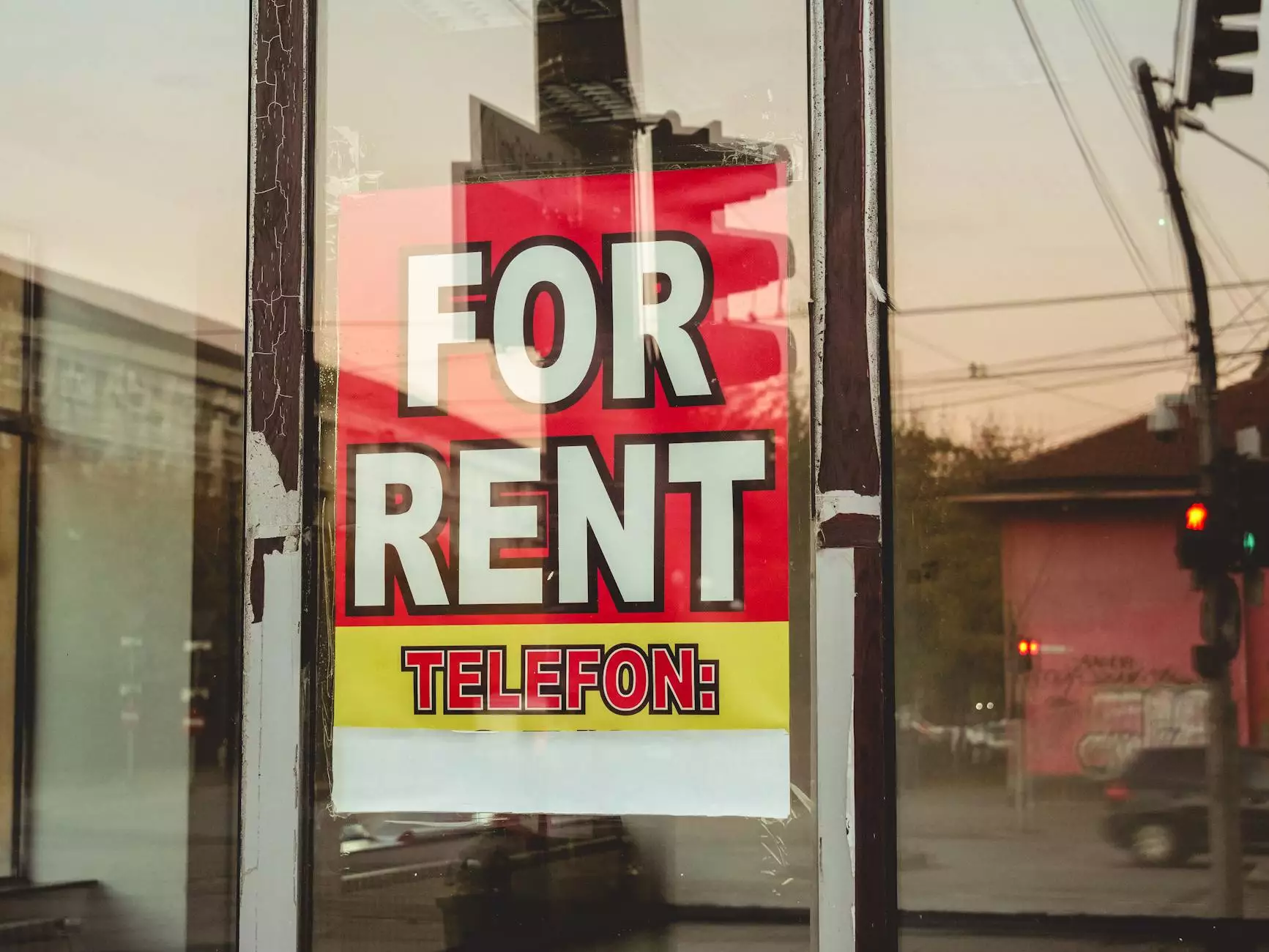Understanding the Essentials of Signing a Commercial Lease

In the dynamic world of business, one of the pivotal steps an entrepreneur or company can take is signing a commercial lease. This essential agreement lays the foundation for your business's physical location and can significantly impact its success. In this comprehensive guide, we explore the intricate components of a commercial lease, emphasizing legal terminology and clauses that are crucial for both landlords and tenants.
Parties Involved in the Lease Agreement
The first crucial element you will find in any commercial lease is the identification of the parties involved. This typically includes the following:
- Landlord: The individual or entity that owns the property.
- Tenant: The individual or business that will occupy the premises.
Here is how this section of the lease usually reads: "This Lease Agreement is made and entered into as of [date], by and between [Landlord's Name], hereinafter referred to as ‘Landlord,’ and [Tenant's Name], hereinafter referred to as ‘Tenant.’" Clearly identifying the parties involved sets the stage for the responsibilities and rights of each stakeholder in the agreement.
Defining the Premises
Next, the lease defines what specific property is being leased, which typically includes the address and square footage. A typical clause may state:
"Landlord hereby leases to Tenant the premises located at [address], consisting of approximately [square footage] square feet, hereinafter referred to as 'the Premises.'" Understanding the exact boundaries and specifications of the premises is vital for avoiding any misunderstandings later on.
The Lease Term: Duration Matters
Every lease has a defined term, which is the duration of the rental agreement. It’s crucial for both parties to be aware of the lease duration, as this informs their commitment to the lease. A typical clause states:
"The term of this Lease shall commence on [start date] and shall terminate on [end date], unless terminated earlier in accordance with the provisions of this Lease." Properly understanding the lease term allows businesses to plan their operations accordingly, especially concerning relocation or renewal options.
Rent: The Financial Obligation
The rent clause is perhaps one of the most significant aspects of the lease, elucidating the tenant's financial obligations. A common wording under this section states:
"Tenant agrees to pay Landlord rent in the amount of $[amount] per month, due on the [due date] of each month during the Lease Term." Knowing the rent amount and due dates is fundamental for maintaining a good relationship between landlords and tenants and avoiding defaults.
Use of Premises: Purpose and Restrictions
Tenants must ensure that the use of the leased property aligns with their business goals. A typical clause reads:
"The Premises shall be used and occupied solely for [permitted use] and for no other purpose without the prior written consent of Landlord." Understanding what constitutes an acceptable use is essential for compliance with lease terms and local zoning laws.
Maintenance and Repairs: Know Your Responsibilities
A well-drafted commercial lease will outline the maintenance responsibilities of both parties. A common clause might say:
"Tenant shall be responsible for maintaining the Premises in good order and condition, including all repairs and maintenance, except for structural repairs which shall be the responsibility of the Landlord." Knowing who handles maintenance can prevent conflicts and unexpected expenses.
Improvements: Customization of the Space
Most businesses require a space that meets their needs, and while tenants often want to make alterations, a lease will typically include clauses like:
"Tenant shall not make any alterations or improvements to the Premises without the prior written consent of Landlord." This ensures the property is maintained according to the landlord's standards while allowing for necessary adjustments by the tenant.
Insurance: Protecting Investments
Insurance is pivotal in commercial leases. Tenants usually must maintain insurance coverage to protect both their business and the landlord's interests. This section may be articulated as:
"Tenant shall maintain, at Tenant’s expense, commercial general liability insurance in an amount not less than $[amount] and shall name Landlord as an additional insured." This requirement helps mitigate risks and protect both parties against unforeseen incidents.
Indemnification: Shielding Against Liability
Indemnification clauses are critical as they outline potential liabilities. A typical clause might read:
"Tenant agrees to indemnify, defend, and hold harmless Landlord from any and all claims, liabilities, damages, or expenses arising out of the use of the Premises by Tenant." This clause protects landlords from claims that may arise due to the tenant's operations.
Default Clauses: Understanding Consequences
Default clauses clarify actions that can lead to termination of the lease agreement. A typical statement is:
"If Tenant fails to pay rent or breaches any other term of this Lease, Landlord shall provide Tenant with written notice of such default, and Tenant shall have [number] days to cure such default." This allows tenants a chance to rectify issues before facing severe consequences.
Termination Conditions: Ending the Lease Properly
Termination clauses set forth the conditions under which the lease can be ended early or upon expiration. A usual statement is:
"Upon expiration or termination of this Lease, Tenant shall surrender the Premises in the same condition as received, normal wear and tear excepted." Understanding these terms is important for ensuring compliance and preventing disputes at the lease end.
Governing Law: Jurisdiction Matters
Lastly, the lease should specify which jurisdiction's laws govern the agreement. A standard clause states:
"This Lease shall be governed by and construed in accordance with the laws of the State of [State]." Understanding the applicable law is essential for resolving disputes and understanding rights and obligations.
Key Tips for Signing a Commercial Lease
Before signing a commercial lease, consider these essential tips:
- Conduct Thorough Research: Investigate the property, the locality, and the landlord's reputation.
- Seek Legal Advice: Consult with a real estate attorney who can review the lease and explain clauses.
- Negotiate Terms: Don’t hesitate to negotiate terms that better suit your business needs.
- Understand Your Obligations: Be clear about what you are responsible for, from rent to maintenance.
- Consider Future Growth: Evaluate if the space will accommodate your business's future needs.
Conclusion: Making Informed Decisions
In conclusion, signing a commercial lease is a substantial commitment that requires careful consideration and understanding of the terms outlined within. By familiarizing yourself with key clauses and seeking professional guidance, you can ensure that your business secures a space conducive to growth and success. Whether you're a startup or an established enterprise, the right commercial lease can pave the way for achieving your business goals.
For additional assistance or contractor services for your commercial property needs, consider reputable contractors like Antham Group, who can offer insights and expertise in navigating the complexities of commercial properties.









